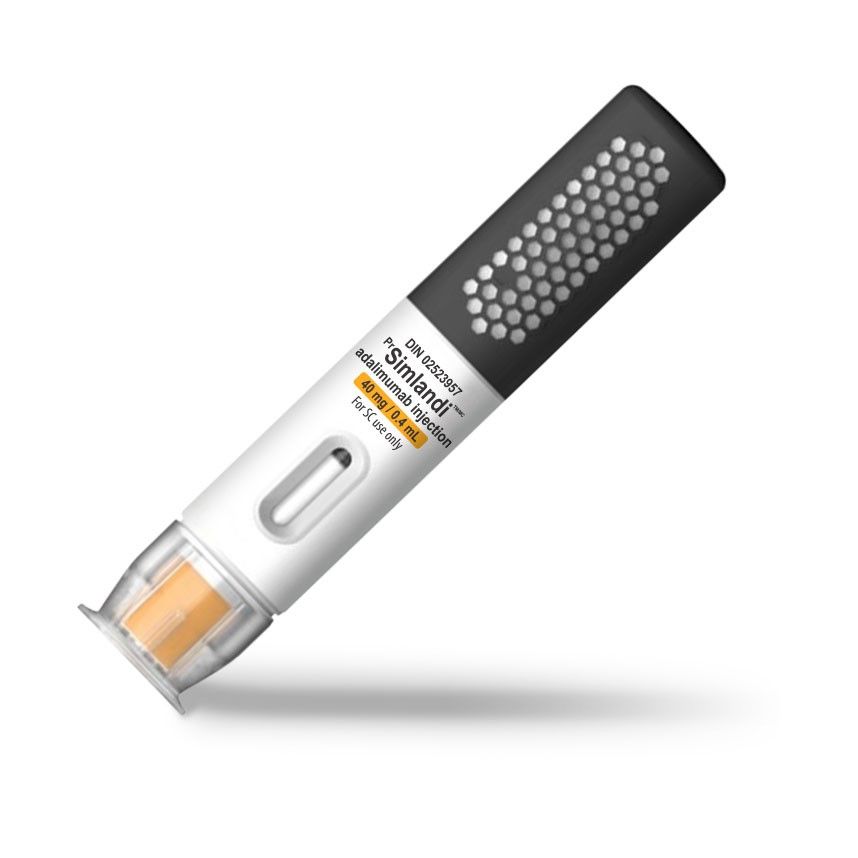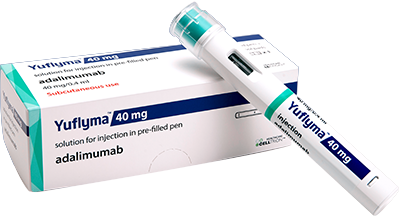- Bone Health
- Immunology
- Hematology
- Respiratory
- Dermatology
- Diabetes
- Gastroenterology
- Neurology
- Oncology
- Ophthalmology
- Rare Disease
- Rheumatology
Canada Clears Alvotech Adalimumab Biosimilar for Launch
Simlandi (AVT02) is the second high-concentration, citrate-free adalimumab (Humira) biosimilar to be approved in the Canada market.
Alvotech of Reykjavik, Iceland, has become the second biosimilar developer to announce an approval in the Canadian market for a high-concentration, citrate-free adalimumab biosimilar (100 mg/mL). The product, Simlandi (AVT02), may launch immediately as Canadian health authorities have ruled that clearance should not be impeded by litigation between Alvotech and the innovator company, AbbVie, maker of the reference brand Humira.
Adalimumab is an anti-inflammatory drug used for multiple conditions, including rheumatoid arthritis, ankylosing spondylitis, psoriatic arthritis, and Crohn disease. In Canada, Humira, the reference product, had sales of over $700 million in 2020, according to IQVIA.
In a statement, Alvotech said that “the 40-mg/0.4-mL and 80-mg/0.8-mL presentations of Simlandi, are not subject to the statutory stay, clearing the way for the launch in the Canadian market.”
In the United States, the market for high-concentration adalimumab now represents at least 80% of the market for adalimumab, according to IQVIA, and only Humira is available there; but in Canada, there has been a history of patients not being able to obtain the high-concentration version, which is prized because of its convenience (low-volume administration) and its citrate-free formulation, which reduces the pain experienced by patients.
In Canada recently, Celltrion Healthcare also has won approval for marketing its high-concentration, citrate-free adalimumab biosimilar (Yuflyma; CT-P17).
Both Celltrion and Alvotech have obtained European Commission approval to market Yuflyma and Simlandi, respectively, in the European Union, where the market for high-concentration adalimumab represents about a 60% share of the adalimumab market, according to Celltrion. However, Celltrion has initiated launch in the European Union and Alvotech has yet to announce a launch date. The reasons for the delay have not been disclosed.
In the United States, Alvotech is entangled in litigation with AbbVie over AVT02, and it’s unclear whether this product will reach market in 2022 or beyond. Both Celltrion and Alvotech are awaiting regulatory approval to launch in the United States.
For Alvotech, the Canada Simlandi launch will be managed by JAMP Pharma Group, a Canadian company based in Montreal. Authorization was granted by Health Canada.
“We are extremely proud to be the first Canadian company to offer this value-added option at a considerably lower cost than Humira, Louis Pilon, CEO of JAMP, said in a statement.
Canada has attempted to jump whole hog into biosimilars by introducing mandatory switching policies province by province and most recently in the Northwest Territories. Biosimilars are as safe and efficacious as reference products, and they hold the potential for enormous savings, as their competition forces reference drug producers to lower prices of their brand products.
Globally, Humira is the top-selling drug, netting roughly $20 billion in sales in 2020. The high cost of Humira, an estimated $77,000 per year per patient in the United States, is seen as a significant barrier to access that in some cases forces patients to make hard choices between seeking treatment with this drug and paying for other essentials.
JAMP and Alvotech said their high-concentration formulations will offer patients some flexibility in treatment: “We will also offer a unique 80-mg/0.8-mL dose to Canadian patients that will reduce the number of starting injections by 50% for the patients that require it,” said Bruno Mäder, president and chief operating officer of JAMP.
Newsletter
Where clinical, regulatory, and economic perspectives converge—sign up for Center for Biosimilars® emails to get expert insights on emerging treatment paradigms, biosimilar policy, and real-world outcomes that shape patient care.


